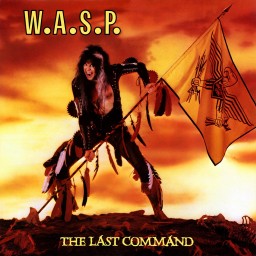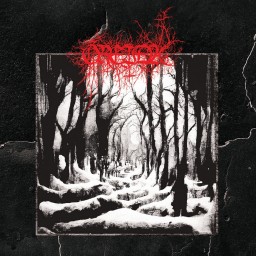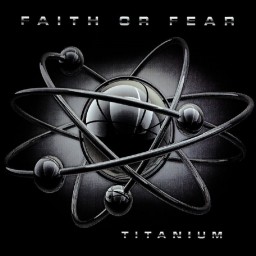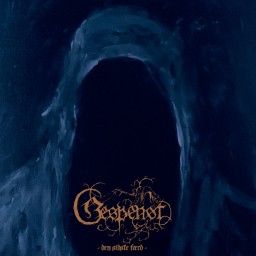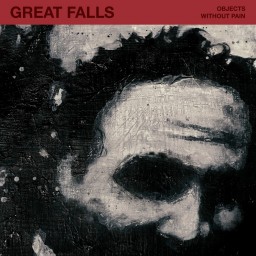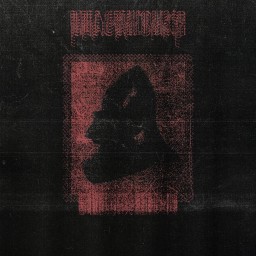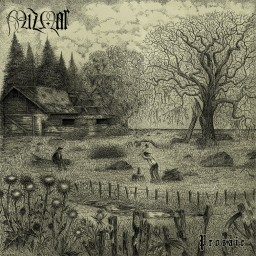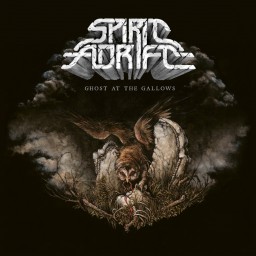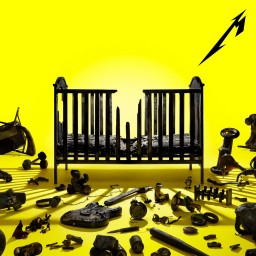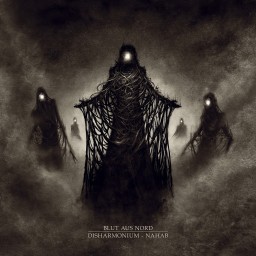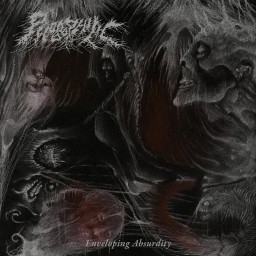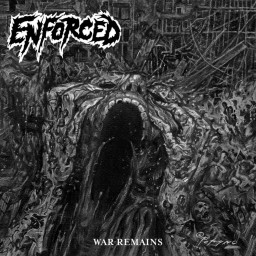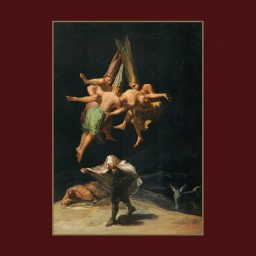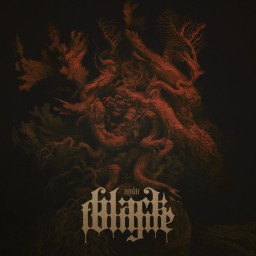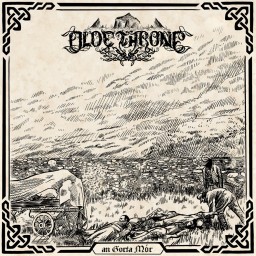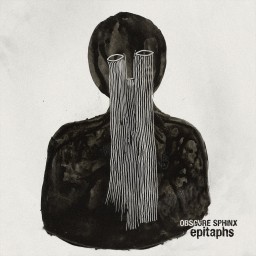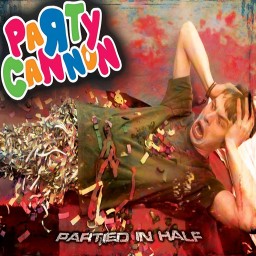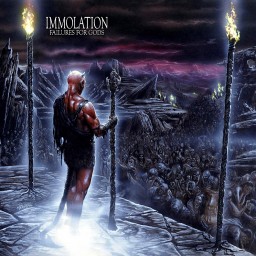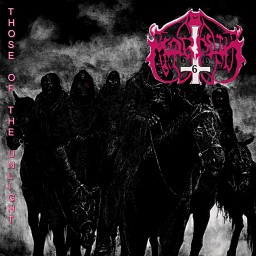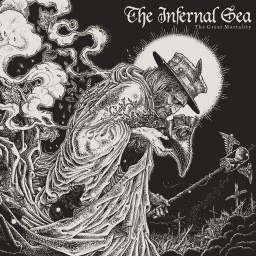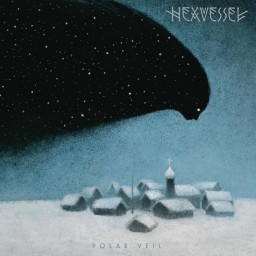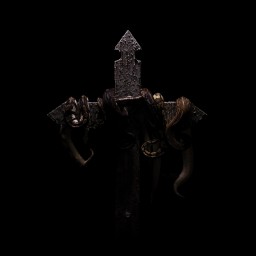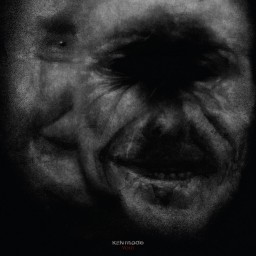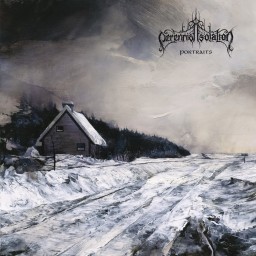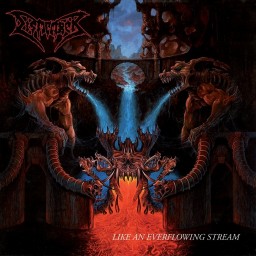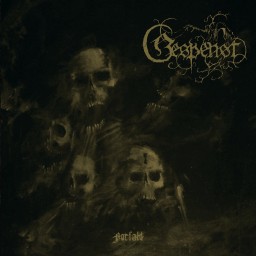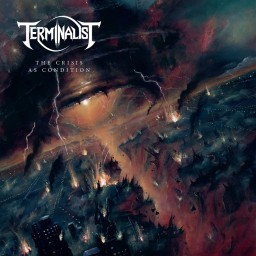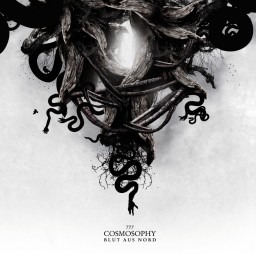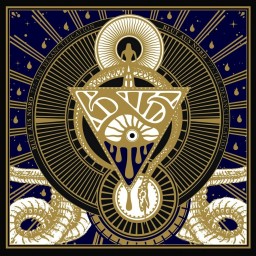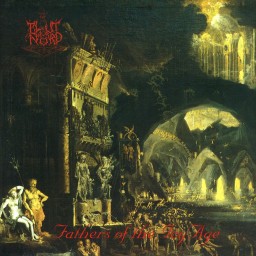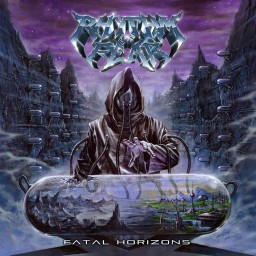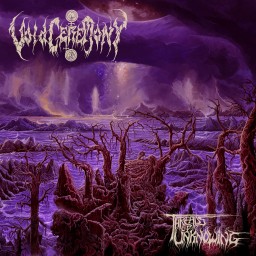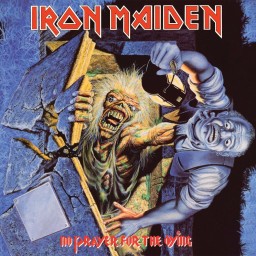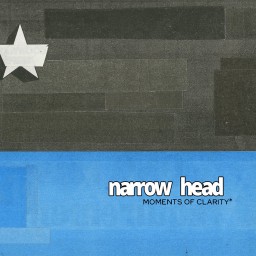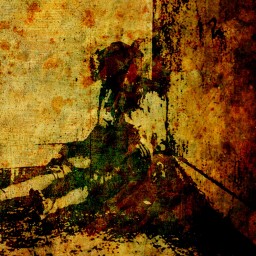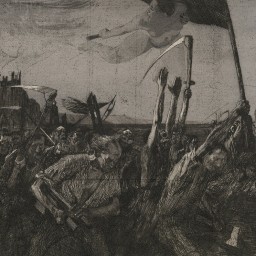Vinny's Reviews
I am murder for not picking up a band’s discography in order. Long after I had heard The Last Command, Inside the Electric Circus, The Headless Children and The Crimson Idol (not done in any chronological order), I finally got around to the bands debut offering. In terms of the albums listed above, The Last Command got the most air-play in my bedroom as a teenager - indeed I owned it on vinyl if I recall correctly. I was mad for two tracks off this record “The Widowmaker” with its menacing build and “Jack Action” with its thundering riffage but there was more to offer from The Last Command besides these two firm favourites of mine.
The album opens strongly with the anthem “Wild Child” which is one of those tracks that takes only a few minutes of listening to before it infects your brain with its catchy chorus. It was obvious to my older ears upon revisiting this record recently that the song writing had picked up from the debut and there was less filler on the sophomore effort. Even though tracks such as “Ballcrusher” and “Fistful of Diamonds” made no effort to separate themselves from the shock rock elements of the band, stronger efforts such as “Blind in Texas” and “Cries in the Night” as well as the title track showed maturity even if filler such as “Sex Drive” still populated parts of the record also.
With nostalgia playing a big part in my enjoyment of The Last Command it is a record that I have heard many times over and can easily play through in my head without needing to reach for the stream or even the CD option that I recall owning (somewhere) to actually play it through. It is not perfect by any means but it is still an important record for me in my metal journey and one that gets a reluctant 3.5 stars since in reality it is closer to a 3.75 rating if such an option existed.
Genres: Heavy Metal
Format: Album
Year: 1985
Sandwiched between their 2012 and 2021 offerings, Grievances follows pretty much the tried and tested path that I have grown to trust Kowloon Walled City to tread. As I become more immersed in their discography the more I sense that I am just tracking a series of above four star ratings for a band that do nothing to push their boundaries all that much. With seemingly little variation on what transpired during Container Ships or what came six years later on Piecework, it is hard to place my finger on the allure of Grievances. I find that after just one listen to any of their releases, I soon become hooked, craving more of that familiarity with each subsequent listen. The fact is that even the most sterile and jaded sounding of music possesses some distinct beauty still. I would go as far as to say that this is why I am drawn so much to the band. They are KWC and are unapologetic for being so.
In keeping with the once autonomus region of Hong Kong after which they were named, Kowloon Walled City offer a sound that nobody else quite has in their kitbag. Whilst their sludge references can most certainly draw comparison to Big Business, they are unique in that they possess the heaviest post-metal around. Stylistically not disimilar to Whores, KWC lack that noise rock element to truly draw an accurate comparison. The only genuine (yet still so distant) reference I can compare KWC to is Fugazi.
Hearing those angular and strained guitars on Grievances instantly showcases the bands individualism, with the equally obtuse vocals lurching alongside those cumbersome but never ugly rhythms. There's a constant threat of something about to go down on Grievances, a sense that these grievances are very personal and quite difficult to contain. Wrestling with them over the seven tracks is still an exhausting task as somehow for an album so devoid of any sense of exhilaration there is still a feeling of completed entertainment, long after each spin of the album has finished. The harsh truths to tracks like Your Best Years, White Walls and True Believer land instantly without the need for any catchiness to allow them to place themselves succinctly in both palms of your hands as a listener. This album is as black and white as the photograph on the cover would suggest it to be.
Genres: Sludge Metal
Format: Album
Year: 2015
If the prospect of an entirely instrumental atmospheric black metal fills you with as much dread as it did me then you could be forgiven for giving up on this review and heading away to look for something else to tickle your atmo-black requirements. Fact is though, I nearly missed a real treat. As recommendations from internet acquaintances go, Óreiða has been a neat find. There’s an undeniable charm to the Paysage d’Hiver-like passages that inhibit these five songs.
One-man black metal outfits are not rare. In a playing field that has long been overcrowded, Óreiða’s unique selling point is the entirely instrumental approach to their sound. Without the familiar cold and harsh vocal style associated with most atmospheric black metal there is arguably little room for hiding if your instrumentation skills are not up to the mark. Thankfully, the atmospherics and instrumentation fill this void with a deftness that at times makes them sound like they are choral vocals. Deploying a dungeon synth style over those big riffs works well. The sense of the music constantly pushing into the negative space, injecting a dank sense of melody is tangible throughout The Eternal.
Residing on the legendary Debemur Morti Productions for this his third record, Þórir G. Jónsson sounds at home on a label roster that includes so many other atmospheric black metal aficionados. The desperation in the whining drone that accompanies the opening two minutes of The River is a delirium inducing sound that you would normally associate with most BAN releases. Serving the dual purpose of unsettling wane and focal background point at the same time, I also found the instrumentation to be sounding perfectly balanced around it, giving a sense of completeness to the track. It was obvious to me by track two just how little I was missing the vocals.
The production job is well-delivered without being too polished. Retaining the thinnest levels of murkiness aids the authenticity factor of the sound with the lush atmospherics and powerful sound of the guitars set against the maelstrom of percussion doing more than enough to give the listener that fully rounded experience. Each track’s title appears to be done a real justice by the sound. The dizzying guitars of The Apex are testimony to this point. It is The Eternal’s ability to tell a story without the use of lyrics to frame it that is one of the most impressive feats that the album achieves. On paper I should be bored to tears but instead I am utterly enchanted.
Genres: Black Metal
Format: Album
Year: 2023
On Sunday 13th September 2009, Faith or Fear's basist Clarence "C.J." Jenkins died on stage after suffering heart failure during one of the band's performances. The fact that the band were still able to perform or put together anything at all just some three years after the tragedy speaks volumes for their dedication after losing a valued bandmate and friend. Although this is by no means a glittering review of Titanium, I am of course mindful of this fact. I have also not heard any other release by Faith or Fear (they have only one other album in a very stop/start career that dates all the way back to 1982)to compare this album with. My research for The Pit playlist each month takes me to all corners of the associated sub-genres, often taking me out of my comfort zone and Titanium certainly has managed to do that.
There are two main problems for me with this record. Firstly, Tim Blackman is not a very strong (or talented) vocalist. His gruff yet unconvincing style fails to hide his shortfalls in trying to front a thrash/groove metal band and when coupled with the frankly childish lyrics they become even less tolerable. Secondly, Faith or Fear show a distinct lack of songwriting capability on Titanium, regurgitating the same ideas over and over whilst not allowing enough room for the real strengths to shine. The stop/start rhythm (to match their career) to many songs soon becomes irritating and the fact is that when they abandon the vocals and go into ful flow they can pull off some impressive riffage and hint at some real power in the engine department. There is also evidence of some decent lead work here and there.
Again, I could understand the sub-par record off the back of the tragedy of C.J.'s death (in fact the bassist who played on this record, Rob Guidotti also passed away in 2022 it is sad to read). Sadly though, even the closing track that pays homage to their lost comrade does little to dispell any of my disatisfaction with this album.
Genres: Groove Metal Thrash Metal
Format: Album
Year: 2012
Following my review of their full length from 2016 I realised that I had not taken time to review the actual release that first got me familiar with Danish black metal outfit Gespenst. Clocking in at a concise thirty minutes and thirty seven seconds, Den sidste færd follows on from the debut album of five years previous with an EP of five multi-paced tracks that capture the ability of the duo to respect the need for menace as well as attack in their sound. As such, this EP fills a hole that may not have warranted filling with a full album of some eight or more tracks. Den sidste færd says what the band needs to say very nicely thank you very much and shows improvement without straying away from the conventional elements of black metal.
Opening track Dødsfærd uses its build intelligently to fill the space it is afforded with a dark and threatening atmosphere before it takes off in a more rampant trajectory, eventually morphing into a very complete sounding experience over the ten minute plus run time. The grim, death rasp of vocalist Galskab combines well with the guitars and keys of Genfærd, ensuring that promise of ethereal atmosphere from those keys and synths is never truly recognised beyond the choking and cloying mist of those ghastly vocals. Guest drummer Mads' performance is pushed far back in the mix here yet he still generates enough steam to let his sticks be heard through the wall of impenetrable guitar or through even the more denser atmospheric moments.
The cold and crawling start to Portal showcases how these guys can immerse themselves into the deepest realms of nothingness and still manage to somehow manifest a growing sense of decay in even the most sparse of surroundings. The track has an almost enchanting level of grimness to it as it draws out an anguished yet enthralling soundscape on what is the second of the two longer tracks on the release. The remainder of the EP seems to focus on shorter tracks which work just as well and offer a nice respite from the more predictable traits of releases where bands go for all long or all short tracks. There's clever use of bass on here also with the gulping sound of Rejse being of particular note. Although not necessarily genre-splitting nor being the most experimental of black metal acts, Gespenst are able to tread a well-journeyed path with a sense of accomplishment, combining atmospheric and more riffing elements well along the way. Ambient album closer Intethed cleanses the palate nicely bringing a subtle end to an otherwise interesting listen.
Genres: Black Metal
Format: Album
Year: 2021
Since I stumbled across their 2021 release, Piecework (an album which was my top pick for that year), I have been slowly working my way through the back catalogue of Kowloon Walled City. I soon settled on 2012's Container Ships as my next regular play, finding the angular and brittle nature of the sound that I enjoyed so much on that latter release in full flight on this release from nearly a decade earlier. The pacing of songs at this point in their careers is not as consistently slow as it was on Piecework but the bleakness is still very obvious at this stage in their songwriting. The bouncing sludge of 50s Dad as track two on here, soon injects a shot of uptempo and disorganised chaos to proceedings. The futile edge to Scott Evan's vocals is perfectly at odds with this faster pace, emphasising the awkwardness and discomfort of the character in the song.
With the bass churning away throughout Container Ships, this soon becomes a very dense sounding album. Changes of pace end with resonance to them that permeates the space around the listener. This adds further tension to what is already an emotionally taut record. The sense of loom and menace that is built over the course of the intro to the title track cannot be denied. It is a perfect soundtrack to exploring the graveyard of ships that is depicted on the cover of the album itself. Whilst undeniably burdened with a megaton sludge weight, it is the contrasting post-metal sections to tracks that really emphasises the brilliance of Container Ships. The charge of the sludge metal never gets to explode to its full potential - which I would normally class as an inhibiting factor, but it works brilliantly here. I liken it to bombs being exploded underwater. You see the water being cast far and wide, hearing the sound of the explosion itself also, yet the violence of the act seems somehow surpressed as it is hidden from view. The majority of the tracks on Container Ships are sludge bombs submerged in, or floating on the top of post-metal seas.
This is not to say that this album lacks agression. Instead the more fierce elements to the record feel more personal. Indeed they seem to hit harder by the simple acknowledgement that anger does not necessarily mean outbursts of violence. The expression of frsutration, futility and fear itself comes through on this album. Whilst the post-metal elements offer this expression they by no means temper the sense of hopelessness that the tracks exude, even on the faster-paced tracks. This is why I find most of what I have heard to date from Kowloon Walled City resonantes with me so easily. There is variation on a theme with KWC that by no means represents a compromised position.
Genres: Sludge Metal
Format: Album
Year: 2012
Boasting a line up from bands I have never heard of before coming to this month’s The Fallen featured release, Great Falls’ Objects Without Pain promised to be a voyage of discovery if nothing else. With a quote from a review of “…if you value art as a triumph of emotion over form, then you should listen”, alongside another quote that referenced comparison with Converge’s Jane Doe album, there was an increasing sense of intrigue as I teed up the stream on Spotify.
The first thing to call out is that this has Neurot Recordings written all over it. After just a few seconds of listening to the album opener Dragged Home Alive, there was no need for me to check the label this was released under. Strained vocals and sterile strings that eventually give way to monstrous riffage later in the track told me all I needed to know. The potent and pungent aggression inherent in the vocals and instrumentation reeked of a band with a real emotional connection to their art, presenting their songs from a very real place. Suffice to say that by the end of track two, Great Falls had my undivided attention.
Rattling into mathy territory with some of the more urgent and pressing tracks (guessing this is the Playing Enemy band member/s influence), Objects Without Pain represents a turbulent listen that possesses the perfect element of restraint without ever fully tempering the raging flow or direction of even the most franticly paced tracks. Where this flow does get flipped on its head and undertakes a dramatic loss of momentum it is done organically and sensibly to help inflict the emotional brevity of the messaging perfectly.
In the more sludgey moments riffs ebb and flow like huge tidal waves of black (not blackened) water with all positivity and colour drained from them. This album confronts the point where tired messaging stops being tiring and instead becomes seething frustration. It pinpoints where the collaborative approach to conflict resolution shatters into the lethal emotional shards that scar all parties involved. The notion that all loss is inevitable is never ignored but it by no means attempts to bill it as tolerable. I would disagree with the above line from the review I saw that said this album represents art over form. Objects Without Pain comes across as very structured, albeit with a crude sense of things dropping into place via the sheer brute force of the will of the musicians involved in its creation.
Whilst containing enough sludge to warrant the tag, there is a lot more to Great Falls than just one element of a genre of metal. The number of band members from the four bands that make up this mystery (to me at least) supergroup clearly gives Great Falls a broad palate to create from without ever overloading the listener. For those familiar with them, the band members of Great Falls are from Kiss it Goodbye, Gaytheist, Play Enemy and Bastard Feast.
Genres: Sludge Metal
Format: Album
Year: 2023
Swedish death/doom outfit Black Wound deploy a sludge metal-like production job on their debut full length. Production values are low to say the least which if this had been a sludge metal record may have been less of a problem for me. As it stands I feel they went a little too far on the extremity and inaccessibility of their sound in my opinion. The reference point I would use here would be Primitive Man - only it works so much better for them. The cavernous and unfathomable depths that Black Wound dwell in simply need more breathing space and as a result the album sounds compressed.
That is not to say that the record has zero positives as underneath the murk there is some lurching and at times rabid death/doom going on. Unfortunately, the elements all seem to merge into one a lot of the time making Warping Structure the absolute epitomy of that album title. It is not warped as such, just quashed. Those riffs have a power that they feel somehow forbidden to express in the squally and chaotic mix. The vocals probably come off best in the mix overall and are seemingly the only part of the album that I can track with any degree of success. The drums sound like a "tishy" mess a lot of the time, occasionally breaking through the noise to show there is some attempt at rhythm going on here.
Now, this is an independent release and so I suspect it was self-produced also on the thinnest of shoe-string budgets imaginable, so some slack should be cut on Black Wound I suppose. Whether intentional or not, Warping Structure misses the mark of being underground and comes off instead as sounding amateur. Even my extreme metal grizzled ears can't cope with too much of this record and I can only hope that the promise hidden in the record is allowed to come to fruition on future releases.
Genres: Death Metal Doom Metal
Format: Album
Year: 2023
I am inconsistent at best with keeping on top of Mizmor releases. Ever since I stumbled across Cairn some four years ago and I backtracked to Yodh shortly after, I have left the rest of the discography untouched, missing last year's Wit's End and Myopia releases as well as 2020's Dialetheia altogether. An internet acquaintance on another forum was catching up on 2023 releases and I saw Prosaic on the list and decided to make some sensible use of the time off from work to give it a couple of listens through. In doing so I read up a little bit on where Liam Neighbors gets his inspiration from to deliver his brand of doom/sludge with a blackened sense of atmosphere. Turns out he is a recovering Christian, having moved away from the religion to becoming firstly agnostic and then atheist. Using Mizmor as an outlet to cope with the transistion both spiritually and mentally his music is laden with anguished tones and the themes cover his personal battles around his beliefs, depression and anxiety.
If I am honest, I did not need to rum through his bio online as from listening to Prosaic alone it is clear that the artist involved is a troubled soul. It plays as an incomplete experience to me and that is not supposed to be aimed as a criticism in anyway - in fact I think it is actually the integral part of the success of the record. To add some clarity around that statement, Prosaic is not an album that I recognise as having the linearity or transitional progress to define it as four separate songs. The consistency to the weight of the music offers little variation across the whole forty-six minutes duration and I absolutely would not want it any other way either. The album is like a continuous dirge for the entire run time, relenting only for brief bursts of acoustic or atmospheric release.
There is little to no hope present in the messaging of the record. It is an utterly immersive yet incredibly punishing experience as Liam lays bare his range of complex and deep emotions across one of the most desolate soundscapes you will hear this year. When in full flow, his music is thunderous and powerful but there is still a near constant scathing edge to proceedings on Prosaic. Admidst all the dark density there is a real sense of frustration and a degee of futility being expressed also that personalises that darkness and frames it perfectly. I think sometimes that personal pain outweighs the artist's ability to express it in the sense that on occasion the vocals do feel a bit weaker in some places. You have to be listening closely to pick up on this (although I would argue there is no other way to listen to this record) and I should also temper this with the fact that Liam himself performs everything on Prosaic. He writes everything, records everything and produces the album to boot so I can afford him some slack for sure.
Genres: Doom Metal Sludge Metal
Format: Album
Year: 2023
Despite drifting away from much of the content that is celebrated by The Guardian clan here on Metal Academy, I do still venture into some good ol’ fashioned heavy metal every now and again when something catches my ear (literally, as I currently only have one functioning ear). Spirit Adrift are a band who are therefore not new to me. I do not recall ever sitting down with a full release of theirs to date, but I have become reasonably enamored with parts of their latest offering.
Ghost of the Gallows is the only heavy metal album I have heard this year. By proxy it is probably the best heavy metal album of 2023 for me I suppose. That accolade carries more evidence than just this being my only venture out with the genre this year. It is an album that is well performed, solidly written, and professionally executed. Nobody is fucking around on the eight tracks on display here. They are all enriched with lush melodies, sullen doom metal tendencies and a kind of grungy vocal style that when combined with the guitar tone of choice reminds me of a much more trad metal version of (modern) Alice in Chains. The lead melodies on the title (and closing) track have some Cantrell-like moodiness to them for example.
The anthems almost form an orderly queue here on this, Spirit Adrift’s fifth full-length offering. Catchy riffs and hooks spill forth aplenty from the beginning proper of Give Her to the River. Couple them with the equally instantaneous and memorable vocals and you have a winning formula for Ghost of the Gallows sticking around in your head for hours on end. Variety comes in various forms. Pace, tempo, structure, melody, and technical prowess. Tom Hardy is a fucking beast of a guitarist. His blooping and looping leads are one of the outstanding takeaways from the record. Possessing a near progressive edge to the work on the six strings, the opening to Barn Burner is a frenzied foray that brings instant variation from the tone set by the lengthier opening track.
There is a sense of completeness to Ghost of the Gallows (although you must work to hear the bass). It is a tight and cohesive element to the sound overall and the band have come together quickly given this is Hardy’s and drummer Mike Arellano’s first album with the band. The combination obviously works as had I not checked the history here, I would have assumed that the line up had been together for some time already.
Not all the tracks are top-notch (These Two Hands and Siren of the South are both expendable for me) and I do like to have a tad more prominence to the bass on my metal records but overall, these are minor quibbles. I find it heartening that I can still find albums such as this one to remind me that all is not lost for me with the genre that I grew up with. These moments of enjoyment may be few and far between, but Ghost of the Gallows is most certainly worth the wait.
Genres: Heavy Metal
Format: Album
Year: 2023
I have not listened to a Metallica album the whole way through since the black album some thirty-two years ago. For a band who’s 80’s output is regarded as near flawless for me, the peer and media charted decline of the band was unfathomable to comprehend, as release after release got shit-canned, perturbing me from wasting my time in bothering to find out for myself whether the criticism was justified. Snippets of albums found their way through to me still, Until It Sleeps, I Disappear, St. Anger and Frantic all underlining my choice to stay away as being more than justified. If anything, based on the coverage I have read, things have only gotten worse as time has gone on. Death Magnetic and Hardwired…to Self-Destruct being subject to particularly harsh derision and of course the Lulu collaboration attracting the most negative responses overall.
An internet acquaintance commented that 72 Seasons was the best thrash metal album of 2023 the other day. If I had taken that comment at even the basest of accuracy levels, I would have been mistaken in assuming 72 Seasons is even a thrash metal record. This is Youthanasia era Megadeth style heavy metal with some elements of well-played guitars hoping to rescue an otherwise below-average metal album. (For the record, Youthanasia is a better record). The second part of that statement about this being the “best” release in the realm of thrash in a year that has seen an Enforced album as well as a Drain record to boot is equally if not more ridiculous than the mis-tagging suffered upon on 72 Seasons.
None of the above of course means that (when considered in isolation) 72 Seasons is a terrible record. If it was made by a band that did not have such a heritage in the world of metal, then it would perhaps be receiving less criticism. Fact is though that does not even sound like Metallica to my ears. Granted there have been many years that have passed since I last ventured into these waters, but Hetfield sounds nothing like he used to and indeed it is only Hammett’s trademark lead work that establishes any semblance of the band I remembered. I could go on about the drums, but Saxy has more than covered all relevant points on that front already in his review. The point I am getting to is that whilst 72 Seasons is not terrible overall, it remains little more than below-average in terms of songwriting prowess and rhythmical maturity – regardless of who plays on it.
Laboured song lengths that expose the obvious lack of ideas may be symptomatic of the issues with the band nowadays but even the shorter tracks such as Lux Aeterna offer little in the way of hope, seemingly just acting as stop-gaps between the longer tracks. The lack of control of the structure of Crown of Barbed Wire is frankly painful with the vocals seemingly crow-barred into a song that they were never actually written for. The unnecessary build on most tracks before they settle into anything vaguely resembling form is tiring, especially from a band who used to be able to do that so successfully back in the day. Even when offered the chance to go for the jugular (something else they could do superbly in their heyday) the band make a hash of the shorter offerings by muddling pace, tempo and arrangement into some hurried exit strategy so we can go back to another long-assed build on the next track.
Metallica in 2023 are indecisive, isolated in their own version of reality and completely unrecognisable as the force of music they so quickly became some forty years ago. For once the hype is correct and I have seemingly missed nothing during the last thirty years.
Genres: Heavy Metal
Format: Album
Year: 2023
Probably one of my all-time favourite acts, Blut Aus Nord have multiple works that I rate highly. My recent revisit to the 777 trilogy of records really cemented my belief that there are very few other artists out there able to mix multiple elements and genres with such aptitude and still tell such a stark and apocalyptic tale at the same time. Only the mighty The Work Which Transforms God probably sits above that trilogy and Disharmonium: Nahab is one of the first modern releases in a while that reminds me of that record from all the way back in 2003.
However, the true talent that any good BAN record has is its ability to fill any room that it is playing in. Disharmonium: Nahab does this brilliantly. There is always a multitude of things going on with any track on here. Haunting and melancholic melodies carve slow cuts out of the very atmosphere around the listener whilst dense atmospherics constantly plunge you into some further incalculable fathom to try and orientate yourself with. The dizzying urgency that opens The Black Vortex soon settles into some undulating and pulsing construct that lurches with some unexpected grace. Yet that opening chaos is never truly lost in the track overall, it merely gets dialed into the structure and tempered a little by the pace of the track overall.
BAN also know how to arrange an album as well. The three Hideous Dream Opus’ prove this with their creepy presence being spaced perfectly to enhance instead of hindering the albums progress. That journey is tumultuous and constantly mines the bowels of terror itself to create a dramatic and thoroughly entertaining release. Every track has its own sense of identity and character. Each one is meticulously put together to achieve maximum horrific effect, making no effort to hide the nefarious intent that lies at the heart of this release.
Disharmonium: Nahab is BAN’s finest record for some time and one that reminds me of the band in their heyday around TWWTG and MoRT back in the early noughties. It ditches the overly melodic strains of their last Disharmonium album and instead focuses on intensity and listener immersion. Full marks.
Genres: Avant-Garde Metal Black Metal
Format: Album
Year: 2023
Albeit done in a completely piecemeal manner, I have probably listened to Enveloping Absurdity at least ten times over without ever taking the opportunity to sit down proper with it and listen to the album end-to-end. Finally getting around to some critical listening time with it this past week I feel I have finally been able to do a full review some justice. With their Demilich, Adramelech and latterly Tomb Mold comparisons being obvious from the off, Phobophilic offer a wide-ranging snapshot of death metal influences on this their debut release. Unafraid to slow things down to a death-march, Incantation-esque pace along the way, this four-piece from North Dakota showcase their range and capability nicely over eight tracks of thick and cloying death metal.
Running sonic melodies around tracks such as Those Which Stare Back like some mini horde of nefarious demons, there is an accessible urgency to Phobophilic’s sound that avoids the catchy and goes more for the complete experience. All instruments sound like they play their part on Enveloping Absurdity. Structures feel like they accommodate all parts of the group, whether it is the assured yet uncomplicated drum patterns or those harrowing melodies that stab through most of the tracks on the album as the guttural vocals and ever-present bass add the real density and weight to proceedings, each component of the band gets valid airtime.
The lead work is crisp and soaring at times, firing grim light out of the unfathomable darkness that enshrouds the sound. Like futile gestures of hope, or beacons of false security they offer some levitation from the murk that clings to the notes and riffs overall. As the album progresses towards its midpoint things seem to take on even more of a proficient standard with instrumental track Individuation being an unexpected high point for me which leads into the equally excellent The Illusion of Self.
For a debut release, Enveloping Absurdity embraces all that I love about death metal. It explores the true aphotic nature of the genre and offers some glimpses of light around accessibility into the dank underbelly of this beast. Yes, there are times where it loses me just a bit as they go off into perhaps too familiar territory and I find myself wondering if this is a little too close to worship as opposed to a celebration. Overall though this is an excellent album that I really should have explored as a full experience far sooner than I have.
Genres: Death Metal
Format: Album
Year: 2022
Two years after Kill Grid and Enforced lavished 2023 with another thirty three minutes of chopping and chugging thrash metal that picked up exactly where the aforementioned release left off. The frenetic pacing and no nonsense approach to the delivery of the ten songs on show again take me on that nostalgic trip to a handful of classic thrashers as mentioned on my review of Kill Grid. But there is a lot more to Enforced than just nostalgia. Enforced are effortlessly keeping up with the cream of the modern thrash metal pack with each release they put out. Standing shoulder to shoulder with the likes of High Command and Judiciary, the band churn out some of the finest punk-influenced crossover in the business. Equally as energetic as early Slayer and Exodus I can see Gary Holt being at home in the ranks of Enforced should such a collaboration ever occur.
Their energy levels here match Drain on their opus from this year but there is a more down and dirty element to Enforced that carries the aura of an Iron Reagan or even a Cro-Mags. Enforced are a fun band talking about serious topics. Revelling in highlighting the hypocrisy inherant in politics, religion and war, they blaze a bruising and scarring commentary on War Remains. It is a state of the world address without the bullshit, minus the glitter and with the turd firmly centre stage with all eyes forced toward it. This disdain exudes forth from War Remains in every gruff chant, every scathing riff and every predatory drum strike.
Three albums in and Enforced can still do no qrong in my eyes and continue to improve on each outing without having to make any major changes or introduce any curved balls in terms of direction or influence. No frills thrash metal with a powerful message behind it that should resonate with anyone with a shred of interest in world affairs and as we rollover into 2024 the thems in discussion on War Remains feel ever so relevant.
Genres: Thrash Metal
Format: Album
Year: 2023
If I look at the success of Oranssi Pazuzu or even Jute Gyte in the avant-garde black metal stakes it is easy to understand the challenges of emulating that level of complexity without sacrificing the conventionl bm sound altogether. No matter how much post-metal side salad gets served alongside the more esoteric and scathing core elements of the dishes in this marketplace, it remains very niche and difficult to break into. Thantifaxath prove me theory really well with this their second full length. Being a full nine years after their debut, Hive Mind Narcosis certainly sounds like it is the product of a vast selection if ideas. Exploring the avant-garde and progressive elements as far as they can, Thantifaxath defintiely stretch themselves musically over these seven songs.
The guitars weave a diving and dizzying tapestry of knotted and tightly interwoven threads that you inevitably lose sight of as the more abrasive and aggressive textures of the rest of the instrumentation invade the space around them. The time-changes and off-kilter rhythm keep you on your toes for sure and this is all done at a frenetic, near rabid pace for the most part. The vocals are suitably throaty and monstrous, retaining that bm grimness perfectly throughout. From the opening horror of Solar Witch through to the disorientating Mind of the Sun, Thantifaxath offer real end-to-end experience of their musical repetoire. Shrouded in mystery (no known line-up has ever been confirmed), Hive Mind Narcosis carves a very unique space for itself.
In all honesty though, after some five or six listens, I just cannot get under the skin of the record. No matter how minimalist I make my surroundings (darked room, headphones on even), I just do not feel I can crack the surface of this album. This maybe because it sets its stall out very early on, giving no build into its mesmerising nature, opting instead to immerse the listener immediately into its deviously cold depths. Or it could be that it is just too damn intelligent for my little brain to comprehend, but however I listen to it I just cannot connect entirely with the release even though I acknowledge the brilliance that lies therein. Even with my most well-honed BAN, Oranssi Pazuzu and Jute Gyte listening skills packed in my kitbag, I still cannot tap into any rich vein for me to suckle at. One for a redux-review in later months I suspect.
Genres: Black Metal
Format: Album
Year: 2023
Still exploring deathcore is the phrase that will probably be on my gravestone, such is the infrequency with which I bother to visit the sub-genre. This record stands out due to the “breakdown factory” that I have heard the previous release from Black Tongue being described as has seen a downturn in its output based on my few listens through this, their third release. Whilst the conveyer belts have not completely ground to a halt, there is a lot to be said for repeat visits to Nadir to truly understand the depth of the ten tracks on offer.
Only Ultima Necat seems to dwell in that truly generic deathcore space. The rest of the track listing is more of an expansive experience. Incorporating grindcore and black metal alongside the slower and abysmally heavy sections of other tracks. The album has a narrative and is therefore told as a story, each track focusing on a life being forced to answer for all the wrongdoings it has undertaken. This cruel judgement is emphasized on tracks such as Parting Soliloquy with its begging and pleading lyrics making as equal a splash as the start-stop percussion and menacing atmospheres. This is by far the most obviously descriptive track in terms of the vocals, but it never strays towards being boring or mundane. Instead, the instrumentation weaves into the space the usually more rapid vocals would fill to pace the track well.
The addition of the Celtic Frost cover is unexpected, yet it works well with the rest of tracks of the album and the cleaner singing that punctuates the track also helps it to stand out from the pack at the same time. Nadir then lives up to the promise of the crawling darkness that the album artwork offers. In parts it is terrifying, resonating with the darker edges of my psyche far too well for my comfort in places. An epic exploration of suffering, judgement and execution, Nadir is a triumph of an album that gets further under your skin with successive listens. In my brief experience of deathcore, it is one of the more mature offerings and one that is perhaps moving the farthest away from that generic sound that so easily lands so much criticism.
Genres: Metalcore
Format: Album
Year: 2018
New Zealand one-man black metal project that themes Celtic history within their songs, Olde Throne were a winner for me before I even ventured into their debut full-length. Thankfully An Gorta Mór matches up to my high expectations of both historic and mythological intrigue as well as ticking all the boxes in the atmospheric black metal stakes also. The album title translates as “The Great Hunger” (or “The Famine” more commonly referred to outside of Ireland as the “Irish Potato Famine”) which was a tragic period of Irish history in the mid-eighteen hundreds that saw over 1 million people starve to death or die from disease over seven years and hundreds of thousands of people emigrate overseas to get away from the starvation and rampant disease of the time.
Olde Throne then, choose a suitably grim and macabre medium in black metal in which to tell this story and the music is appropriately harsh and abrasive to underline the horrific suffering of the time. Equally, the atmospherics emphasize the futility of the situation as whole families literally wasted away whilst staring into a fathomless void of hopelessness and despair. These atmospheres are dense and possess a catastrophic depth to them that is embalmed perfectly by the ghastly vocals and relentless urgency of the riffs. Moments like the melodic guitar work on Connla’s Fate, stay with you long after the album has finished and as such An Gorta Mór is successful for making this representation of such abject misery such a memorable experience.
The temptation would be to expect multiple intro/outro/interlude tracks, yet An Gorta Mór uses a straightforward approach to the song structures, simply letting the harsh impact of the subject matter drive the emotion of the album. Rarely have I heard such an expressive and complete black metal track as A Dying Land, a track that simply plays out the desolation of the events in a stunning tremolo and spoken word/chant combination alongside some more familiar ghastly vocals. The intensity of this track alone is worth the visit to the album.
It is hard to find much in the way of criticism as my only real challenge with the album has been that it requires many visits to truly get the impact of the record. However, I do not often go in search of atmospheric black metal to gratify any need for immediacy of connection. The album most definitely rewards these repeated visits and is an album that will personally stick with me for some time to come.
Genres: Black Metal
Format: Album
Year: 2022
I have been toiling with Epitaphs for a couple of weeks now. Drawn by the combination of the ethereal post-metal sections alongside the chunky sludge riffing, the album did a great job from the off in terms of conveying the fathomless depths of sorrow whilst also successfully iterating the harsher realities of pain. Ironically it has been this combination of styles that has led me to take so long writing this review. For the most part they work well in creating both present space as well as at the same time filling the space yet to come. However, there are times when the song structures just have an air of predictability about them and as a result the album comes off as having a lack of ideas around transitions.
More on that later though as I would like to concentrate on the positive in the first instance. Vocalist Zofia Fraś is top of the shop in this section. Possessing a voice that could never be described as serene (not by my ears at least), she instead carries a volatile power in her voice that does not always rely on the softer edges you would associate with post-metal. Often, she simply adopts tuneful yet not overly precious tone to her vocals in the slower sections, even deploying simple chants for the first part of Memories of Falling Down. In the heavier sections she chooses a heavier but not guttural style that provides aridity almost without ever coming across as sounding brittle. She is clearly supported by some excellent musicians, all of whom can play and are afforded lots of clarity in the mix also. The rhythm and percussion sections all have a chunky feel to them with the riffs often reverberating off the bass lines nicely whilst the busy but not at all intrusive drums land an assured footprint across proceedings.
Obscure Sphinx clearly have a connection going on throughout the band and their music reflects this depth of mutual respect with each of the component parts being allowed a real sense of presence but never at the expense of anything else. That having been said, there is still a little bit of work to be done to ensure that this marriage of styles sits a little more comfortably alongside one another. I would argue that there are tracks here that do not necessarily need a combination of post-metal and sludge with some of this clunkiness also being down to things just running a bit too long in some regards. As an overall album, fifty-seven minutes feels a little bloated and the previously mentioned Memories of Falling Down arguably could have done with a trim. In terms of consistency, it is the middle three tracks here (Nieprawota, Memorare and Sepulchre) that linger better on the ear as shorter tracks that just seem to choose a direction and get on with it.
I am still impressed by Epitaphs though, even taking into consideration my struggles, as it is an album with a depth that needs a few visits to it to really get to know the space in more detail. With strong Neurosis, Cult of Luna and Isis vibes going on, these Poles have quite a kit bag with them already. It just needs a bit more accomplishment and better arrangement (two opening tracks more than thirteen and twelve minutes respectively is a tough starting point) but I have every belief they will get there sooner rather than later.
Genres: Sludge Metal Post-Metal
Format: Album
Year: 2016
If I am honest, I have fallen a bit out of love with death metal in recent months. Some of this is due to me exploring black metal in some more detail but some of it is equally down to the lack of real appeal behind most of what I hear from the genre nowadays. The vast majority of death metal has been done before, let's be honest. Yes, there are relatively new off-shoots such as Dissonant death metal which add the occasional variance from the norm but at the same time there seems to be a bottomless pit of bands doing nothing new. In this state of the death metal world address I am leading up to the fact that I needed a jolt in the arm to try and shake off this funk. Fuck me did I miss the vein with this attempted injection of exploration.
Dunfermline, Scotland's Party Cannon are a spoof band or one that does not take themselves too seriously anyway, this we all can see from the logo of their band alone. The dumbass cover that adorns this EP does do the job in setting the expectations of what to expect from Party Cannon perfectly. This is noisey death metal, often just done for noise's sake it seems. Dubbing themselves as "party slam", the band skirt aorund the periphery of brutal death metal and slam death metal with an assortment of breakdowns, pig squeals and a seemingly inexhaustible level of energy. I mean, Partied in Half is a tiring experience, even for this old extreme metal fan. Dizzying heights of blistering pace and repetition soon make this fifteen minute EP feel like it is just one track, interrupted only by film/tv extracts to help the listener determine some change in schedule.
There is a version of this EP that is extended to include a promo release from the previous year. This only extends the agony if you are unfortunate enough to find it, you'll have had enough by the time you get through the main three tracks that make up this EP. I am all for humour in metal (Macabre have made a successful enough shot at it over the years) but this just seems immature and attention seeking stuff that I don't really need in my life.
Genres: Death Metal
Format: EP
Year: 2013
Normally a guaranteed win with anything I discovered by them, Failures for Gods has always been the exception to the rule for me with Immolation's otherwise fantastic discography. With only Alex Hernandez new in post, the same line up that produced Dawn of Possession and Here In After somehow managed to go off the boil with album number three. I will call out early in the review that although Hernandez is a fantastic drummer, his performance on this record is dubious and suffers from some mistiming on top of a poor mix and production that makes the drums sound too wet and tepid. His perfomance on Failures for Gods is nowhere near the level of confidence that is obvious on the follow up to this record, Close To A World Below (my favourite Immolation album).
To be clear though, the let downs on this album are not all down to Alex. Paul Orofino does little to help the band with a production job that sounds murky and claustrophic. Guitars sound stifled, as if struggling to find space to fill with their angular sound. The clicky sound to the drums does nothing to help this sense of confinement and in the end, only Dolan's vocals get anything like the attention they should in the mix. Again, this problem did not persist when Orofino continued to produce Immolation albums for the next few releases so I suspect that Failures for Gods was his first death metal production job (or one of his first at least) and so he had quickly learned his trade come the next album.
This album is full of the trademark Immolation attack coming straight out of the traps with the monstrous Once Ordained making the bands intentions clear enough on track one. But a few of the tracks on here feel cumbersome in nature with that familiar shifting sound becoming more of a lurch, certainly without a consistent sounding percussive backdrop to shape and guide it at least. The threat of the melodic and lead work of the guitar is all but tamed in the grander scheme of things, sounding more monotone than menacing. Thankfully little more than a blip on the discography, Failures for Gods is cursed by a tired production job and some lack of focus on all details and is an album that I rarley visit as a result.
Genres: Death Metal
Format: Album
Year: 1999
I have been taking some much needed time off from work this week and have used some of the time to focus on some more critical listening of albums that I have never really gotten on with. The sophomore from Marduk following the death metal laden debut from some three years earlier has never lived up to the expectations set by peers that was the band's magnum opus. Whilst I can fully accept that Those of the Unlight is an all round improvement in terms of musicianship and songwriting it is still not an out and out black metal album to my ears. Granting some slack for it being only their second full-length release, there is still a sense for me of Marduk somehow not doing black metal properly on this record.
The legacy death metal elements that lurk around and punctuate Those of the Unlight are confined to the random explosion of leads that just do not fit on a black metal album. Whilst we are most certainly not in Panzer Division Marduk mode at this early stage of their career nor are we churning out a worthy competitor to Pure Holocaust, Det som engang var or Under a Funeral Moon either. That is not to say that I am shitcanning Those of the Unlight, it is not a bad record, just one on which the transition to full blown black metal had yet to be completed at this stage. Dare I say it that for a black metal record - let alone a Marduk record - it is quite tame and a bit boring in places. It somehow sounds like black metal only done half-right, occupying this odd environment where it is knocking at the door of bm most definitely but sounds more gothic in places than I would exepct it to.
There are plus points though. The audible bass that you can track across more or less all tracks is a bonus that exudes confidence and maturity. The pacing is much better controlled overall also; gone is the feeling of Marduk's own music racing away with them and leaving them playing a crude game of catch up with themselves. It is a flawed record though because it can literally pass me by without me finding anything truly amazing, or all that consistent to grab my attention with. The hype I hear surrounding it probably has not helped but I just do not see the high accolades this record gets as being accurate.
Genres: Black Metal
Format: Album
Year: 1993
I watched a documentary the other day about the UK black metal scene. Amongst the commentary from various bands it was noted that there is no distinct British black metal sound that would make it standout from the Scandinavian or Polish sound. I found this to be a pretty obvious statement once I had heard it but it absolutely rung true in that same instance. I had already been playing The Great Mortality by East England's The Infernal Sea for a couple of weeks prior to catching the above documentary and it had already struck me how much Gorgoroth, Watain and Mayhem was observable in their sound. This is by no means a bad thing of course. The Infernal Sea are not plagarising any of those acts, they are just wearing their influences on their sleeves.
In the more blasting moments (on the shorter tracks especially) these vibes really show and the solid drum presence, coupled with those urgent tremolo riffs and scathing vocals make it obvious that this third wave band clearly have their roots in the second wave sound that we all know so well. It is on the longer tracks that The Infernal Sea really get to shine though. Key are the more atmospheric and paired-back sections that show a real depth to the songwriting prowess wihtin the band. Spend some time with tracks such as The Bearer and you will find the less intense passage a welcome variant from the otherwise rampant energy of many of the other tracks. Album closer Brethren of the Cross tends to lack the same space by comparison and is more of a glorious exploration of those influences done at pace. It is perhaps one of the better tracks on the and it has a strong Satyricon sound to it.
Back to the documentary I mentioned, when bands from the UK can put together black metal as strong as this, who cares if it carries any identity of its own? Looking at photos of these guys they clearly have their own look going on and have a passionate grip on the bands that they have been listening to for years. The Great Mortality is an album that simply celebrates black metal, sipping at many different chalices along the way and making no apologies for the strains that dribble down the chin and onto the clothing.
Genres: Black Metal
Format: Album
Year: 2015
Until this release, Hexvessel had established themselves as being a psychedelic rock/folk outfit over the past fourteen or so years. Deploying an increasing level of post-metal and atmospheric doom to their latest album (with a noticable flavour of some black metal making an appearance here and there) has seen them at last fall onto my radar. Fronted by prolific vocalist and guitarist Kvohst (Beastmilk, Code, Void) these Finns have produced an enchanting and endearing listening experience that I was not expecting to enjoy as much as I have if I am honest. With a strong connection to mysticisim and mythology, Hexvessel are described by Kvohst himself as being "a free spiritual journey and a musical odyssey with no boundaries".
This description fits Polar Veil perfectly as the opening track alone combines elements of black metal, doom and psychedelic rock to make a haunting and ethereal opening to proceedings. Whilst occasionally hit and miss, the rest of the album builds well from this great start. The intricate yet not at all complicated structures are omnipresent throughout all eight tracks. Kvohst himself takes charge of songwriting duties and he has an obvious talent for this using his guitar to establish some soaring and dense riffs that pierce sections of songs to provide real highlights. His darkly melodic vocals are a perfect accompaniment to the atmospheric keys and immersive depths of those riffs. There are a couple of tracks where things do get muddled (closing track Homeward Polar Spirit sounds like there are two different tracks playing) and these are obtuse to the point of being distracting. Yet at the same time there are absolutely fantastic pieces of music such as Listen to the River, A Cabin in Montana and my personal favourite, Ring that are so well composed and arranged that the less well constructed tracks do fade from the memory when the listener is in the presence of these more positive tracks.
Whilst never testing the conventional black metal stakes too strongly, Polar Veil borrows elements of tremolo nicely alongside some touches of atmospheric bm that enhance the spiritual aspects of the album well. At times I find the drums to be absent in sections of tracks or on whole songs. However, when they are heard, their presence is hefty yet unintrusive. I think this subtlety was a conscious effort in the mix to allow the more mystical aspects of the instrumentation to shine. Having heard the previous album (Kindred) from some three years ago, it is fair to say the band have gotten heavier this time around and I can only hope this trajectory is maintained on future releases. They still have a healthy mix of styles present here though that compliment each other nicely and so I am equally eager to hear that this blending of influences is alo retained moving forwards. Think Sólstafir with elements of Urfaust and Blood Ceremony and you are on the right track here.
Genres: Black Metal Doom Metal
Format: Album
Year: 2023
Following my review of KEN mode this past week I found myself seeking something for the weekend that would continue those hardcore vibes but have the necessary edge to represent the plunging temperatures that mark the end of summer here in the UK. Enter Danish boys Hexis and their full-length from last year with their thumping rhythms and blackened aesthetic perfectly scratching that itch.
Aeternum is the band’s third full-length release (there’s a multitude of splits and EPs littered throughout their discography of the past eleven years or so) and is a harsh and bruising affair that goes straight for the jugular in the main. It is in your face from the get-go and retains that consistent threat for all the forty-five-minute run time. Yet there is a knack for the longer tracks stealing the show here that leaves more of a lasting impression on me. Exhaurire, at over seven minutes is a personal highlight for me. Expansive and divisive in equal measure the bass drop at four minutes in and the ethereal, female vocals that close out the track both come out of nowhere to catch me off guard.
You cannot deny the true power of Hexis when they are at full tilt though. With slamming rhythms and swarming riffs, they batter and disorientate at the same time. Bearing the brunt of this relentless attack is a taxing experience yet one I found myself rearing up and looking for more of. The subtle tempo changes aid the experience, and the track ordering gives the album a genius level of arrangement ability. Tempering the length of Exhaurire by dropping two tracks immediately after it that are under one-minute-thirty-seconds, eases the listener into the second half of the album as the track lengths start to creep back up again.
Possessing a morbid choral atmosphere at times, the album continues to contort like the serpent on the cross on the album artwork. Aeternum is a writhing experience that carries with it an air of unbearable discomfort that leads to this convulsive performance. I get the genuine sense that the three longer tracks on here are all geysers that vent the overall fury of the shorter tracks as they build between these lengthier passages. The focus in the doomy riff that opens Vulnera (my album highlight) is intense and captivating, dragging the track into life via some abysmally slow death march. The instrumental and largely ambient title and closing track is just about the only real let up on the whole record.
Otherwise Aeternum simply spews forth at the listener with a tsunami of nihilistic hatred for Christianity that makes no apology for never relenting (although it does on occasion at least temper) on the intensity of their message. Music to stick your chest out to and wear your metal medals with pride for all to see.
Genres: Black Metal
Format: Album
Year: 2022
Sitting completely off my radar for most of their discography to date, KEN mode came up in a random playlist this week and I found myself intrigued by their clear blend of core infused sludge that seems to have a constant threat of exploding into some mathy chaos. Grateful that this possibility is never realised VOID plays to the more appealing elements of how I like my sludge; reminiscent of Kowloon Walled City who I also stumbled across randomly.
This thoughtful and mature edge to VOID bleeds through on tracks such as These Wires which is an exhausting and emotionally charged near eight minutes of turbulent percussion and boisterous vocals tempered by the gradual build of the instrumental track (a la Russian Circles), We’re Small Enough that immediately follows it. Unafraid to bring the noise though, the crazed jazzy ending to I Cannot shows the versatility of KEN mode perfectly. Whatever track you listen to on the album you cannot deny how emotionally supercharged the whole thing is and the elements of control that are deployed on that energy make for a very interesting listen overall.
Whilst there is a sense of fight to the record, there is a frustrating futility to that conflict, an underlying tone of defeat being known but the level of tenacity in the energy of the tracks refuses to admit defeat. Monotone bass lines and an often-deployed plodding rhythm compliment the dark edge to the lyrics well without ever making for dull or lifeless compositions either. There is a level of intrigue that I maintain in listening to this record that I do not often find with most releases nowadays. VOID certainly has something to say but it is not limiting itself to shouting in my face, nor is it hiding behind conjecture either.
Not all elements work for me. The spoken word on Not Today, Old Friend certainly play to the aesthetic of the song but just feel out of place still somehow. The more noise rock portions of KEN mode are the more challenging for me overall even though they do tangle the most intricate of webs that I do still have to acknowledge the talent behind the creation thereof.
Genres: Sludge Metal
Format: Album
Year: 2023
With the album artwork on their fourth release being every bit as descriptive as the band’s name itself, it is not unexpected to find that Perennial Isolation’s music is steeped in atmospheric black metal. Just about the only surprising element to PI is that they are not from the icy wastelands of Scandinavia at all. The four members are in fact Spanish, yet they possess none of the warm continental temperatures associated with that country in their sound thankfully. Portraits is as chilly as atmospheric bm gets yet the sound also has a distinctly modern edge to it also.
The tracks themselves are very melodic and accessible numbers that are driven by solid riffs and crisp, soaring leads, all done over a bed of distinct yet not overpowering drums. Vocalist Albert (his other job is as an extreme vocal coach btw) gives a suitably ghastly performance on the vocals – my initial fears that the album would be full of clean vocals based on the album opener are thankfully not founded. It is clear from this record that some ten years into their existence, PI have developed their sound well and play with a real sense of accomplishment.
The tremolo is strong on most tracks here and the blastbeats maintain a hefty presence without ever becoming the bane of the other instruments. The production job of renowned Spanish producer Oscar David Raventos (Mr Ax.) is top-notch and really does allow all elements of Portraits to shine to make am impressive collective. My criticism of the album is limited really to it being nothing new. It is well done atmo-black with an almost progressive leaning at times, and I suspect that moving forwards the latter element would do well to be brought to the fore with an increased frequency across future releases. At times, it does drift towards being too accessible for me and loses some of the more conventional ideology of the genre along the way. Still, it manages to chime and resonate in all the right places and overall is a find I plan to revisit.
Genres: Black Metal
Format: Album
Year: 2021
"Suffer a thousand deaths!"
Working through my physical copies of releases is highlighting some glaring holes in my reviews here at Metal Academy. Near the top of the list of the 'missing' has to be Like An Ever Flowing Stream. With only a limited level of patience with Swedish death metal there is still no excuse for me not getting around to this one given that I own it on vinyl and it is one of my most frequently played. Off bat, I prefer this album to Left Hand Path any day. Both albums are massively important (as I recognise in my review of Entombed's debut) but Like An Ever Flowing Stream possesses more depth and overall appeal to my aging ears. There is a real motor feeling going on throughout LaEFS, one that borders on an almost relentless delivery.
There is a section at around 03:20 of album opener Override of the Overture that is simply one of my favourite moments in metal ever. It just absolutely shivers me to my timbers and that's within the first three-and-a-half minutes of the record. Likewise the buzzsaw build of And So Is Life alongside its rabid spine of racing death metal is a superb way to open side 2 of 4 (on my version of the LP at least). Dismember on their debut managed to clock a lot of the same reference points as Entombed but I sense there is much more musicality to LaEFS by way of comparison to LHP.
Now, none of the above means the debut from Dismember is perfect by any means. I happen to think it suffers from a rather soggy sounding production that somehow seems to cause reverb between the drums of Fred Estby and the vocals of Matti Kärki. In isolation there is nothing with either of the contributions these two make, indeed both are very integral to the successes I can pick up from the album. For either of them not be lost against the backdrop of those vicious riffs is an achievement in itself. However, I do not think they have been afforded enough space to truly appear as cohesive parts. In addition to this the bass drum of Estby is far too thick also which is particularly audible on Skin Her Alive.
Still, I cannot deny the infectious appeal of Sickening Art, despite this muddy/soggy production issue plaguing it more than most tracks. Here though we get the haunting melody of the guitar of David Blomqvist that manages to create its own threatening atmosphere as it replicates at various other points in the album. Often the 'lead' work is more some well considered injection of fear and dread, something which the album has in droves. This is probably another reason why LaEFS sits so much better with me than the debut by their fellow countrymen, it just feels better written with a sense that there was a much bigger kitbag at their disposal when it came to putting their debut together.
Genres: Death Metal
Format: Album
Year: 1991
There is a fair old amount of looming menace packed into the thirty-nine minutes that encompasses the debut album from Gespenst. These Danes know how to get the hairs standing on the back of the listener’s neck and have us shut the curtains and light lots of candles to truly celebrate their glorious black metal. I first stumbled across this duo via their Den sidste færd EP from 2021, soon finding myself leafing back through their very short discography, I have given Forfald a few spins in recent months.
This is a very anguished sounding black metal record to my ears. It has a base sense of melody that the tremolo drives nicely alongside an expansive (yet not atmospheric) backdrop that seems to curtail any sense of the proceedings getting too rapid or downright abrasive. Reminding me of Cultes Des Ghoules minus a lot of the theatre, Gespenst have a very simple yet effective approach to their music that breeds a sense of clarity in their sound that requires no help from particularly high-value production work. Bordering on the ritualistic/sacrificial side of bm at times (Revelation of Maggots’ spoken word section being one such memorable moment), there a sense of subtle ceremonial build over the course of the album, without ever becoming completely immersed in it.
Constructed over just four tracks, with none of them less than seven minutes in length, Forfald has an ease about the listening experience. Granted it has little in the way of the unique to separate it from the rest of the pack and therefore comes with very little challenge but at times it reminds me of a much more tempered and somehow infinitely more threatening version of Mayhem. As the album closes it only seems to prolong this sense of it writhing in the very murk it revels in for the whole experience. Hearing their later offering it is clear that much of the promise heralded here is realised and this bodes well for the future. I sense that given their lack of output (two releases since 2008), both members have (or had at some point) other projects ongoing, noting both members here reside in the melodic black metal group Black Dementia also. This limited output could well work in their favour though as I have yet to hear anything I do not like.
Genres: Black Metal Doom Metal
Format: Album
Year: 2016
Self-confessed ‘hyperthrashers’, Terminalist have gone all out socio-political on album number two. The Danish/Americans have ditched the more sci-fi based tunes from their debut with a grim and scathing commentary on the bleaker elements of modern real-life. Sounds like a write-up for a DSBM band, right? Should be expecting dull and sad tracks that fester in their own misery, right? Well, not as it happens.
The sophomore from Terminalist relies on more than descriptive passages about the hopelessness of life here, now, and in the future. Riddled with technical 80’s thrash metal references, The Crisis as Condition is entertaining and endearing once you engage with it. Despite not having much in the way of positivity present in its themes, there are some reasonably bright sounding moments within the track listing. For all the speed on show, none of this is at the sacrifice of accessibility.
In their more frantic moments, Terminalist are a consistent machine that churns frenetic thrash metal that never quite hits the technical prowess of Coroner or the progressive complexity of Vektor. In their more structured tracks, they are still perfectly capable of adding expansion and depth to songs, all done with an efficient if not all that remarkable level of musicianship.
In terms of scoring, there are simply not enough standout moments on this record to warrant it receiving many revisits after a couple of listens. Therefore, I find myself giving it a middle of the road score when I was initially thinking this may be a lot more special than it eventually turned out to be. It is solid enough but gets a little lost in its own consistency to really make any waves. The nuances are there (the closing track clocks in at over ten-minutes and does offer more in the way of variation across its runtime) but are too infrequent to have much lasting impact.
Genres: Thrash Metal
Format: Album
Year: 2023
The final forty-five minutes of the 777 trilogy plays like a known/visible summit that still heralds the promise of further lands to explore beyond its initial confines. The only release of the three albums that make up the set that I initially struggled with, the closing 777 offering is the most devious of the lot. Taking some of the more obscure elements and allowing then more clarity and prominence in proceedings (the spoken word opening to Epitome XV, for example), it feels in so many ways like an appropriate culmination of the experimentation the set has explored.
Offering new beginnings and the window most certainly for endless ongoing thought as to what could possibly come next, Cosmosophy again champions a more accessible delivery ahead of cold and abrasive conventional bm which this time around also pairs back the density of the atmospheres. They are far more ethereal and grander here, appearing to be fed by the instrumentation as opposed to elevating it as on The Desanctification. This seems to create more space than on previous releases but the desire to fill that with the more complex and arcane strains of the BAN repertoire seems to have been satiated by this point. Simplicity rules the day here. Extending the duration of passages and allowing repetition or deliberately laboured pacing to carry the momentum forwards.
You could arguably look at this theme of basics in more than one way. Is it the hallmark of the release of death or perhaps the wonder of the start of a new life? I personally do not have the time or inclination to explore such philosophical musings, but my point still stands, Cosmosophy makes you think. It is the brightest light in the trilogy overall and even the most nihilistic parts of my being cannot deny that this more positive environment is alluring (I avoided the use of “welcoming” as after all this is BAN and the guard always needs to be up of course), especially at the end of listening to the full 777 album set back-to-back this morning.
As a trilogy, the 777 albums not only offer an exploration of intense philosophical, mythological, and sociological themes, they also show the full extent of the BAN armoury. It is hard to leave the bm tag against Cosmosophy unchallenged as the album has far more post-metal elements at its core than any bm roots being consistently visible. It avoids going all “gazey” thankfully though and cements BAN’s status as one of the most challenging extreme music artists out there.
Genres: Avant-Garde Metal Black Metal Post-Metal
Format: Album
Year: 2012
The second part of BAN’s 777 trilogy picks up right from where Sect(s) left off. All the romantic violence and highly intelligent, systematic destruction that Sect(s) mapped out for us now takes a more sardonic and sarcastic slant. Mocking the very foundations that Sect(s) so heartlessly swept away, The Desanctification proceeds to belittle the very basis on which they were ever formed.
Although instantly more accessible than its predecessor, part two of the trilogy seems to have devilish intent behind what I deem to be a false sense of security. Within touching distance of these more rock laden riffs and morbidly soaring melodies are still the grim vocals of Vindsval that occasionally enforce this mocking feeling by spouting almost rap-like passages. Slower picked strings appear to offer some element of Eastern promise on Epitome IX as BAN’s cultural nihilism seems to offer no limit to the range of its scope.
Not for the first time on a BAN record, I get a sense of some dark country and western elements to some of the twisted melodies. One of the real successes of The Desanctification is not only in the scale of its musical depth but also in the density of the horror it manages to create alongside the often benign and even downright catchy elements. Taking the accessible and contrasting it with elements that seek to alienate is one of the groups key attributes and it is done well here.
Playing as some fundamental lesson in dark academia, the album seems to invoke so many different responses in me yet overall feels like a very subtle exercise in complex yet effective communication of the esoteric. Instead of twisting and contorting, tracks remain structurally very solid yet never drift into sterility. Dark as the songs maybe they possess one common trait in the inherent richness of the component parts that are all so well mixed together to create a full sound and very complete feeling album. I have the vinyl box set of the trilogy and so have had the pleasure of listening to this record as part of the whole set. However, as important as it is in terms of the whole trilogy, The Desanctification plays reasonably well in isolation also.
Not one for the bm purists by any means but a triumph of both design and content for any music fan.
Genres: Black Metal
Format: Album
Year: 2011
Whatever it is that Blut Aus Nord have become nowadays any time spent with their earlier full-length releases is usually time well spent. Before the industrial, dark ambient and outright avant-garde elements fully took root in the band’s sound, they could turn out some of the richest atmospheric black metal ever produced. The sophomore release is one of the real gems of the BAN back catalogue in this regard. It is expansive without being progressive, it possesses a real knack for letting melodies dance into the harshest of environments and is very well played throughout.
I am a sucker for a good layer of audible bass being present on a black metal album. Drudkh’s Microcosmos being one such example of when this has worked well. By way of comparison, MVIFotIA is less obvious but even by just pushing my hearing a little further into the record, guest bassist Ira Aeterna’s four string prowess really shines without overwhelming any of the other component parts. More prominent in the mix are the lush and rich melodies of the guitar played by Vindsval. Alongside the colder riffs that are omnipresent in the background it seems throughout the record; it is these soaring notes that fill the mind as you listen to the record. Given they deliver such a warm presence it is hard to see how the album still comes off as such a cold experience overall.
The grim vocals of Vindsval give way to the occasional clean chant which does not always sit well with me. They are not Bathory levels of bad or anything, but they do provide an unwelcome distraction when they are deployed. It is hard to criticise much of anything else on the album though. Yes, the drums are but a dull thud most of the time, but I cannot cope with that to a point. Keys are used sensibly – no Emperor like grandeur present here folks – but whenever they are deployed, they are used to give just the slightest edge or sheen to an element or section of a track.
Although not reaching the higher end of the star-rating, the sophomore album from BAN is still a great record. The odd meandering note, the cleaner vocal passages, and the overall lack of compositional completeness (the album actually sounds like it is missing drums full-stop in some places) detract from anything above four stars for me but for anyone wanting to capture the “old” BAN sound before some more modern and varied influences came into play should pick up a copy of this album.
Genres: Black Metal
Format: Album
Year: 1996
It is refreshing when I come across an album in the realm of black metal that contains several tracks over the nine-minute mark that do not rely on atmospherics to shroud the delivery in some vast and dense soundscape. Forfader, the debut album from Danish bm band Glemsel, relies on pure repetition and driving tremolos and rhythm to get its point across. Look here and you will find no WITTR references or Darkspace-like distractions. Instead, we get treated to some traditional instrumentation such as the lyre (member of the lute family) and the oboe (double reed woodwind instrument) to flesh out the traditional bm fayre that the four-piece unleash here.
Featuring a sepia photograph of two ladies arranging some flowers from ye olde days as the cover artwork, there is little in the way of ornamental beauty present on Forfader’s six tracks. Where we do find brief moments of respite though there are hints of a less frantic approach to the music, dangled tentatively in front of us. Album intro track Arv immediately heralds the promise of some ethereal stringed enchantment, but it is in fact a deceitful start as the following three tracks make no effort to return to the more placid beginnings of the record.
By far the album’s most lengthy number, Det gamle må vige manages to avoid the epic edges of songwriting over its eleven-minute plus run time. After seven-and-a-half minutes of driving black metal, the slow picked strings tantalise the ears as the oboe gets some airtime before we are sucked back into tremolos and blastbeats galore for the remaining minute or so of the track. Whilst this track would make a good enough album closer, that task falls to the ten-and-a-half minutes of Ansigterne. An initially slower, more deviously evil track on which those grim and ghastly vocals really get their chance to shine, this track ends the whole experience by simply offering the exact same format as the previous tracks in the main.
Fair play to Glemsel for picking a direction and sticking with it. The inclusion of the more obscure instruments is restrained to mere moments and although their impact is noticed I find myself remembering more the consistent pace and tempos of the album overall. It is a strange album that somehow creates depth via the sheer will of its ever-present engine bearing down on the listener. A triumph of the tremolo over keys if ever I heard one.
Genres: Black Metal
Format: Album
Year: 2022
With the furore around Power Trip over their years of existence, bands such as Rhythm of Fear seem to have slipped under my radar completely when it comes to modern crossover thrash metal. Upon hearing this, their sophomore release a few weeks ago, I was immediately impressed with the Florida four piece's blend of Cro-Mags meets Leeway meets Testament. As such, Fatal Horizons has found itself on regular rotation here in my lair and whilst it lacks some of the memorability (and perhaps publicity) of Power Trip, it is no less of a quality release than Nightmare Logic was, for example.
Capable of playing with rabid pace and razor sharp skill, the guitar work of Cody James when combined with the gruff vocals of Jay Santiago make for a solid and capable combination to be reckoned with. The chugging engine of Rhythm of Fear being kept running in no small part by the consistent drumming of Logan Miano, leaving the bass of Justin Styron as the only real casualty of proceedings as I struggle to hear anything but fleeting moments of his work during the frenetic yet very clearly produced duration of Fatal Horizons.
Anthems such as Alien Synthesis, Parasomniac and Insidious System give the album some hooks to sink into the listener's memory banks but this is not to say the rest of the album is filler (there most definitely is some of that here). Whilst some tracks, such as the title track, do need rescuing by some crisp and blistering lead work from Cody, they are all built on solid foundations and in the end only suffer from a lack of development of ideas overall. With thirteen tracks to go at, there are three interludes/instrumentals that do not bring anything to the album for me and act more as interruptions in all honesty that disrupt some sense of flow. Still a fine modern crossover thrash metal album by all means that carries a lot of energy from start to finish.
Genres: Thrash Metal
Format: Album
Year: 2022
Following my immediate purchase on CD of VoidCeremony's debut album in 2020 after just a couple of streams online, I was keeping an eye out for the follow up for what felt like an eternity. With its bass-heavy presence the debut took the prog element of prog-death and put it on a plinth all of its own before surrounding it with some great OSDM vibes to ground proceedings nicely. Some three years later and Threads of Unknowing picks up essentially where Entropic Reflections Continuum: Dimensional Unravel left off. Damon Good's bass still commands a lot of attention (and rightly so) and that OSDM vibe is still present also, thankfully.
The main immediate difference to note this time is that production job that makes the drums sound like they are incredibly brittle. Despite the obvious hard work of Charles Koryn, his efforts are stifled somewhat by knob-twiddler, Gabriele Gramaglia. The leads shine well enough though. Soaring and uplifting, they do a quality job of expanded the soundscape of Threads... without giving us any pretentious traits to get annoyed over. These cleaner, more progressive elements are the strongest part of the album for me and I agree that VoidCermony do work better as a progressive outfit as opposed to a technical/prog-death band. I do not have a problem with the vocals actually. I can see where the aversion comes from but I find them perfectly acceptable.
Whilst I am not as instantly blown away by their sophomore album, I still find Threads of Unknowing to be a solid record and one that does grow with each listen. Yes, it is bottom-heavy, with the second half of the record easily outstripping the first half, but this is still a mighty fine album, delivered by some very professional sounding individuals. Drums aside, I have no real issue here.
Genres: Death Metal Progressive Metal
Format: Album
Year: 2023
The debut EP from Isis shows a remarkable level of maturity. The build to opening track Poison Eggs sounds like it is written by a band some ten years into their existence, not just twelve months as was the case with the band at the time. This release shows just why Isis grew into staples of the sludge metal world. Whilst there are spades of aggression and harshness for the listener to feast upon, there is a restraint to elements of the violence also. Underlined by the tightness of the performances, as a whole The Mosquito Control is a real force to be reckoned with.
At not even a full half hour, there still feels a lot of activity to process on this EP. Tracks shift and lurch beneath the monumental weight of the noise created by the fusion of drums, guitars, bass and vocals. Yet no track ever descends into full-blown chaos, even on the manic Life Under the Swatter there is a more subtle passage that tempers the frantic pace and tempo really well, giving the listener a slight breather before launching them straight back into the pulsating fury of the track again. The standout performance on the EP is without doubt Aaron Turner's vocals. Rabid to the point of leaving him breathless, they fit so well with the instrumentation it is literally a marriage made in heaven. That is not say that the rest of the group take a back seat. The stabbing groove of the riff that starts Hive Destruction proper is infectious as fuck and I find myself clamouring for its urgent cuts as the slower, doomier riffs take precedent. Likewise, the motoring bass of Jeff Caxide drives this sense of urgency and control throughout the whole EP, whilst Aaron Harris puts an amazing shift in on the drums.
The heaviness on display throughout The Mosquito Control is relentless. Listen to any modern sludge act like Primitive Man and you will here the poisonous fury of Relocation Swarm as cornerstones of most of what they do. This is possibly one the heaviest releases I have heard in my life and the production and mix job leaves it all sounding so fresh and organic. This is oppressive music that is ironically very freeing an experience to listen to. You absolutely should give this the attention it commands. There are no short measures of focus allowed when listening to The Mosquito Control, close all the blinds/curtains, turn all non-essential devices off and let the music take you.
Genres: Sludge Metal
Format: EP
Year: 1998
As the 90's began with the promise of so much to come from the more extreme ends of metal, Iron Maiden released an album that clearly marked their decline. No Prayer for the Dying took the more commercial, catchy elements of Seventh Son of a Seventh Son and went mental with them. With Adrian Smith gone the band added Janick Gers to their line up in his place. With Smith's exit, so to seemingly went the penchant for solid song writing and interesting structures, replaced instead with absolute smash and grab, single fodder. The likes of Tailgunner, Holy Smoke and of course Bring Your Daughter...to the Slaughter (a track supposedly written by Dickinson for the movie soundtrack to Nightmare on Elm Street 5) all providing us with incessant itches in our brains for years to come.
They did this commerciality really well mind. Although the bulk of the album is soulless overall, audiences still lapped it up with over 3 million copies of the record sold across the globe. Even the less commercially attractive tunes such as The Assassin and Run Silent, Run Deep had enough of a chorus line to stick in the lug 'oles long after the album had finished and of course we cannot get any closer to blatant quick wins for zero effort than Hooks In You. What all these attempts at hits did was simply underline how awful the remainder of the record truly was. The lacklustre and instantly forgettable title track alongside the dreadful Fates Warning being perfect examples of this.
Add to this the genuine clumsiness of Public Enema Number One and Mother Russia and we have no individual track that I can find anything positive to say about. Playing it back through in my head (as I don't actually need to reach for the CD - which I guess is testimony to the "catchy quest" being a success) now it genuinely feels like a sell-out record and one that had I not only just been discovering metal at the time would likely have not made it in to my collection at all.
Genres: Heavy Metal
Format: Album
Year: 1990
The promise of some Deftones influence in any band's sound instantly puts them on a solid footing for me to venture into checking out at least one or more of their releases. Narrow Head do not fail to live up to that promise either. There are times during Moments of Clarity when you could be forgiven for thinking they are the Deftones. They wear that influence on their sleeves with pride and do a very good job of representing the nu-metal/hazy alternative metal sound along the way. My problem with MoC is not that it anyway apes or simply copies an already well-sampled blueprint. The issue I have with this record is simply that is boring.
There is an overwhelming sense of positivity in the sound of Narrow Head that I just cannot bear. Notwithstanding that I am most definitely not a happy person 90% of the time, the good vibes here are still too much and the album fails to shine with any maturity or sensibility at all. Tracks just seem to merge into one. With no depth to the song writing there are no standout moments to pick up on and no variance in the emotions to hammer home any real point to the record.
My forays into The Gateway are very infrequent and it is the fear of finding records like this that give me that mindset. Far too safe and far too staid as a result.
Genres: Alternative Metal
Format: Album
Year: 2023
For a while it was looking like my review of “Reeking Pained and Shuddering” was going the same way of 2020’s “I Speak the Truth…” in terms of me struggling to actually articulate any individual standout parts. As with that later release, the 2007 offering is upon first listen a chaotic and often unsettling affair, but on this particular ride that unsettling nature is delivered beyond just the maelstrom of sounds that we are presented with. To these ears, “Reeking…” presents with a lot more control and conscious effort to disturb the listener with some good old fashioned atmospherics and samples.
Look past the scathing vocals and clatter and clashes of industrial influence and you will hear a cinematic dark ambience to this record. I had to make a rare excursion into using my headphones to truly appreciate the qualities on show here (something which my ears will suffer for today I am sure). The time taken, sat in a dark hotel room with no external distractions to take my focus off the stimulation my ears where receiving gave me the chance to track the proper structures that sit in amongst the torrent of terror of most tracks. These consistent elements seem to take the form of droning atmospheres that provide a dense foundation layer to the tracks.
The samples from various horror films and other macabre sources, work well and add depth to what could otherwise be barren soundscapes in terms of a perceived human touch. Ranging from the dramatic to the downright weird, they offer snapshots of madness into an already demented routine. Here again though is where I struggle a bit with the record. There is a lot going on and so if you are looking for memorability, those snippets that you hold onto, subconsciously or otherwise, then you are going to struggle here. For me, there would be no dialling down of the extremity if a few less ideas made it onto the record as the consistent parts develop an environment all of their own. This is still a good record though, albeit one that I would not consciously be drawn back to on a regular basis. I am coming to view Gnaw Their Tongue releases as occasional jolts to the system to remind me that the blueprint of structures can be torn up and form can be sacrificed for all out expression of the true turmoil within some artists.
Genres: Black Metal
Format: Album
Year: 2007
On paper, Panzerfaust do not have a lot going for them. With a sound not dissimilar to Mgla whom I have never really seen the total appeal of over the years, the fact that any of their releases have lasted more than one listen is an achievement in itself. However, whilst I do accept those references to the Polish band I believe there's more to the Canadians that just the dashing black metal sound that draws the similarity. I am familiar with the releases that precede and follow this one and so my experience of the band overall draws me to reference elements of Deathspell Omega (although a lot less chaotic) and my personal favourites Gaerea also. Something in that mix of stabbing dissonance and a taught emotional core just thrusting to get out and spill its guts everywhere just speaks volumes to me and the second chapter of The Suns of Perdition series of albums best exemplifies this for me.
There is an urgency to ...Render Unto Eden that feels like the itch of a skin infection that has some festering fluid to release but continues to taunt the afflicted by prolonging the incessant, gnawing sensation. At the same time, there is a lot of structure to this record. These tracks are well-written and are allowed to develop well on each occasion. Opener, Promethean Fire has a superb build that makes the listener wait for its arrival proper by layering the textures slowly but surely. At the same time, the flurrying melodies of Areopagitica will have you palpitating as you try to keep up. What I hear on this record is a band exuding a level of intelligent restraint. Having the heart to share some influences without necessarily wearing them on their sleeves, yet at the same time having the common sense to not let the urgency of their style substitute structure and track development.
The drums on The Snare of the Fowler act like tools to build up to the the almost Ulcerate-esque melodic riff. Indeed Alexander Kartashov shows a prowess on the drums for pretty much all of the record and the bellicose (and it has to be said rather Nergal-like) vocals of Goliath are also a standout. But it is the chiming, stabbing and soaring work of the guitar of Brock "Kaizer" Van Dijk that truly steals the show here as those ringing tremolos capture the ghastly melodies and haunting dissonance inherent in the Panzerfaust sound. I guess there is a deeper story to the album trilogy here that I am yet to tap into, but for now let me acknowledge what a fine record this is - regardless of any conceptual references overall.
Genres: Black Metal
Format: Album
Year: 2020










